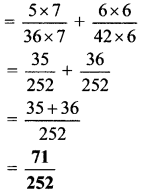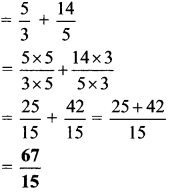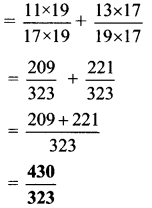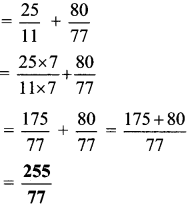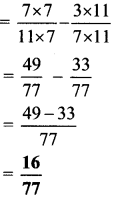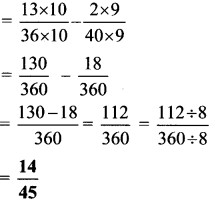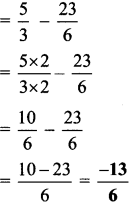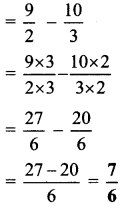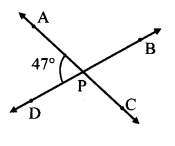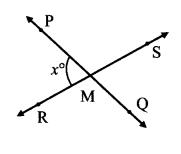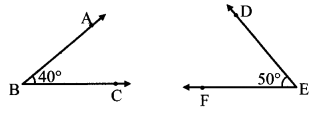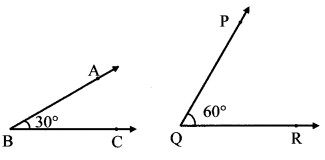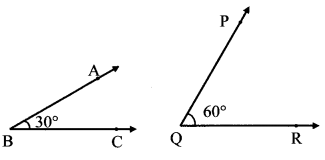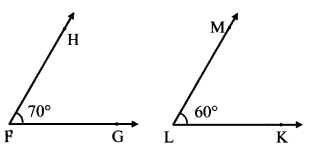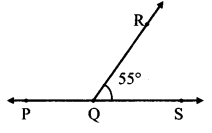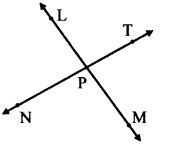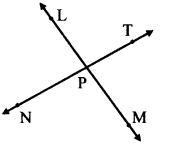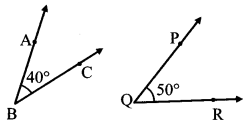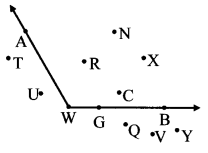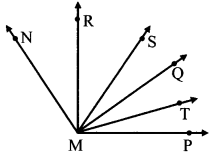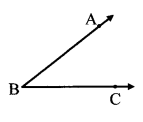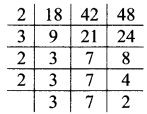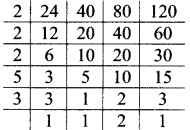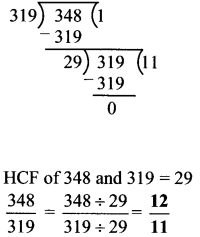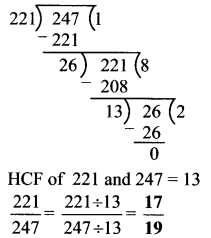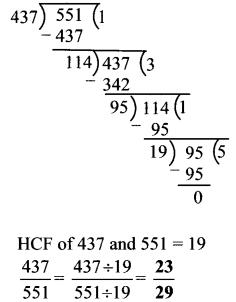Balbharti Maharashtra State Board Class 7 Maths Solutions covers the 7th Std Maths Practice Set 23 Answers Solutions Chapter 5 Operations on Rational Numbers.
Operations on Rational Numbers Class 7 Maths Chapter 5 Practice Set 23 Solutions Maharashtra Board
Std 7 Maths Practice Set 23 Solutions Answers
Question 1.
Write three rational numbers that lie between the two given numbers.
i. \(\frac{2}{7}, \frac{6}{7}\)
ii. \(\frac{4}{5}, \frac{2}{3}\)
iii. \(-\frac{2}{3}, \frac{4}{5}\)
iv. \(\frac{7}{9},-\frac{5}{9}\)
v. \(\frac{-3}{4}, \frac{+5}{4}\)
vi. \(\frac{7}{8}, \frac{-5}{3}\)
vii. \(\frac{5}{7}, \frac{11}{7}\)
viii. \(0, \frac{-3}{4}\)
Solution:
i. \(\frac{2}{7}, \frac{6}{7}\)
The three numbers lying between \(\frac { 2 }{ 7 }\) and \(\frac { 6 }{ 7 }\) are \(\frac{3}{7}, \frac{4}{7}, \frac{5}{7}\)
ii. \(\frac{4}{5}, \frac{2}{3}\)
\(\frac{4}{5}=\frac{24}{30}, \frac{2}{3}=\frac{20}{30}\)
The three numbers between \(\frac { 4 }{ 5 }\) and \(\frac { 2 }{ 3 }\) are \(\frac{21}{30}, \frac{22}{30}, \frac{23}{30}\)
iii. \(-\frac{2}{3}, \frac{4}{5}\)
\(\frac{-2}{3}=\frac{-10}{15}, \frac{4}{5}=\frac{12}{15}\)
The three numbers between \(\frac { -2 }{ 3 }\) and \(\frac { 4 }{ 5 }\) are \(\frac{-9}{15}, \frac{-7}{15}, \frac{4}{15}\)
iv. \(\frac{7}{9},-\frac{5}{9}\)
The three numbers between \(\frac { 7 }{ 9 }\) and \(\frac { -5 }{ 9 }\) are \(\frac{6}{9}, 0, \frac{-4}{9}\)
v. \(\frac{-3}{4}, \frac{+5}{4}\)
The three numbers between \(\frac { -3 }{ 4 }\) and \(\frac { +5 }{ 4 }\) are \(\frac{-2}{4}, \frac{-1}{4}, \frac{3}{4}\)
vi. \(\frac{7}{8}, \frac{-5}{3}\)
\(\frac{7}{8}=\frac{21}{24}, \frac{-5}{3}=\frac{-40}{24}\)
The three numbers between \(\frac { 7 }{ 8 }\) and \(\frac { -5 }{ 3 }\) are \(\frac{17}{24}, \frac{11}{24}, \frac{-13}{24}\)
vii. \(\frac{5}{7}, \frac{11}{7}\)
The three numbers between \(\frac { 5 }{ 7 }\) and \(\frac { 11 }{ 7 }\) are \(\frac{6}{7}, \frac{8}{7}, \frac{9}{7}\)
viii. \(0, \frac{-3}{4}\)
The three numbers between 0 and \(\frac { -3 }{ 4 }\) are \(\frac{-1}{8}, \frac{-2}{8}, \frac{-5}{8}\)
Maharashtra Board Class 7 Maths Chapter 5 Operations on Rational Numbers Practice Set 23 Intext Questions and Activities
Question 1.
Answer the following questions: (Textbook pg. no. 36)
- Write all the natural numbers between 2 and 9.
- Write all the integers between -4, and 5.
- Which rational numbers are there between \(\frac { 1 }{ 2 }\) and \(\frac { 3 }{ 4 }\) ?
Solution:
- 3, 4, 5, 6, 7, 8
- -3, -2, -1, 0, 1, 2, 3, 4
- \(\frac{1}{2}=\frac{1 \times 2}{2 \times 2}=\frac{2}{4}=\frac{2 \times 10}{4 \times 10}=\frac{20}{40}\)
\(\frac{3}{4}=\frac{3 \times 10}{4 \times 10}=\frac{30}{40}\)
∴ The rational numbers between \(\frac { 1 }{ 2 }\) and \(\frac { 3 }{ 4 }\) are \(\frac{21}{40}, \frac{22}{40}, \frac{25}{40}, \frac{27}{40}\) etc.
Std 7 Maths Digest
- Practice Set 22 Class 7 Answers
- Practice Set 23 Class 7 Answers
- Practice Set 24 Class 7 Answers
- Practice Set 25 Class 7 Answers
- Practice Set 26 Class 7 Answers
- Practice Set 27 Class 7 Answers
- Practice Set 28 Class 7 Answers
- Practice Set 29 Class 7 Answers
- Practice Set 30 Class 7 Answers
- Practice Set 31 Class 7 Answers
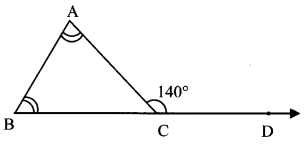
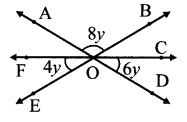
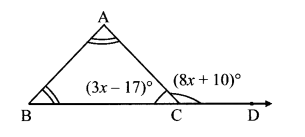
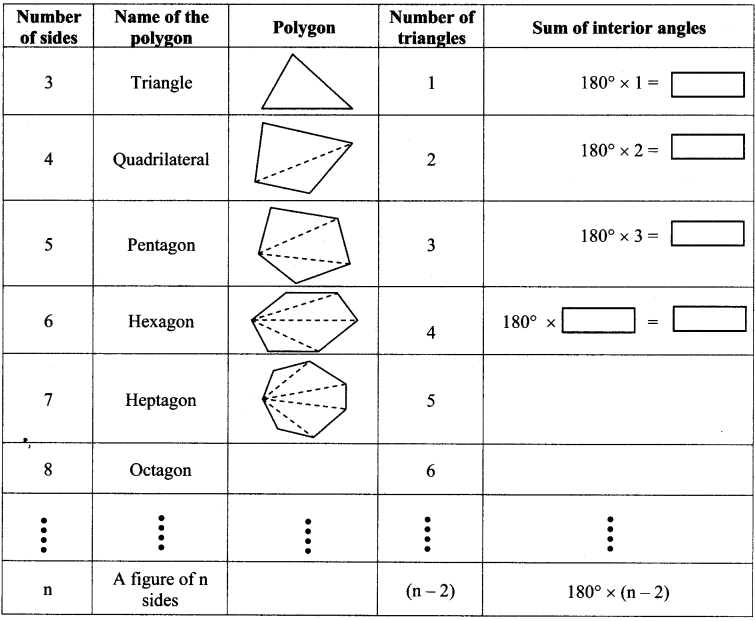
 , 180° x 6 = 1080°
, 180° x 6 = 1080°